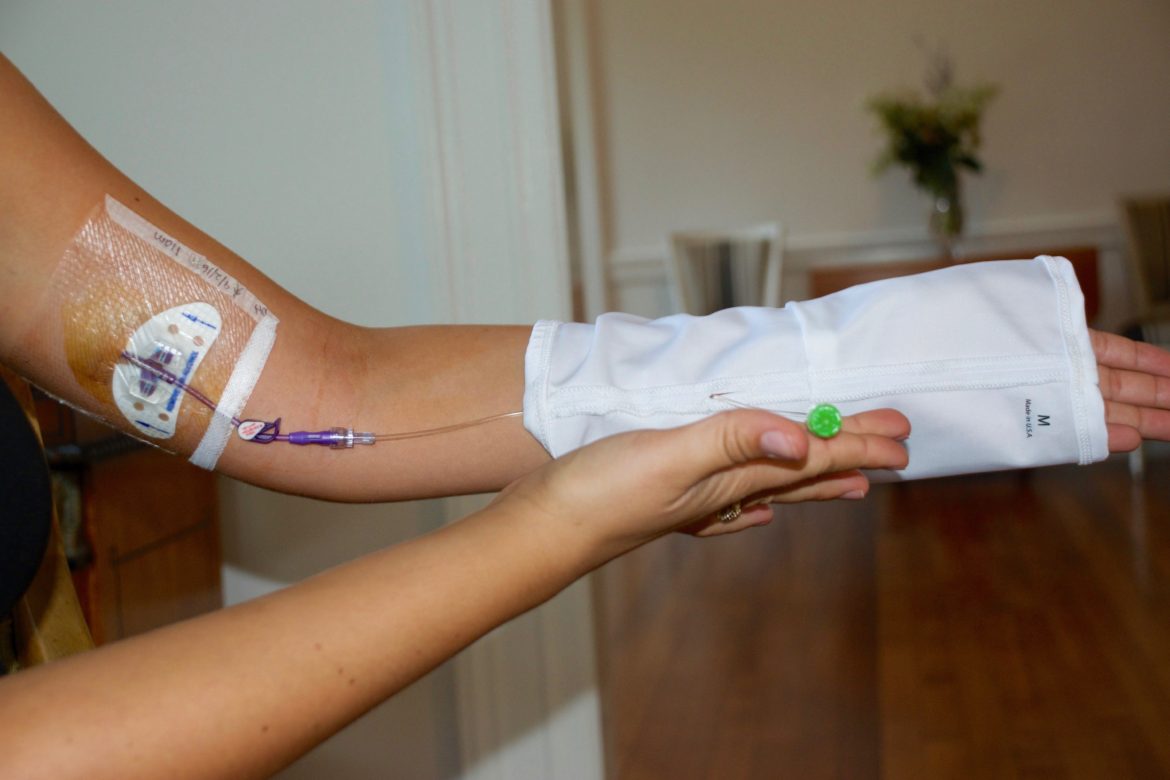Finish by scrubbing the hub for a minimum of 15 seconds with another alcohol pad let it dry apply a new cap flush the line.
Picc line caps change.
After the first 24 hours the frequency is every seven days and prn as needed if dressing is loose damp or soiled.
A picc line requires careful care and monitoring for complications including infection and blood clots.
This is done before and after each use or weekly when not in use.
The steps are the same for a hickman or picc line.
Flushing the picc line will help keep the line open and prevent clots.
A picc line gives your doctor access to the large central veins near the heart.
See additional information and instructions on caring for your hickman or picc catheter.
Grab some alcohol pads and clean off the distal port of the picc and the cap let it dry.
Move on with your life with your dignity intact.
Peripherally inserted central catheter dressing change a peripherally inserted central catheter picc is a long thin tube that goes into your body through a vein in your upper arm.
The cap on the end of each lumen of your catheter needs to be changed once a week.
Assess the dressing in the first 24 hours change for accumulation of blood fluid or moisture beneath the dressing.
If your picc line is not used often the picc line will need to be flushed regularly.
A picc line can help avoid the pain of frequent needle sticks and reduce the risk of irritation to the smaller veins in your arms.
For this procedure you do not need to wear gloves but your hands must be very sterile.
Grab a spare tourniquet loosely wrap both the end port and the cap twist.
Caps on all cvcs this includes piccs should be changed at a minimum at least every 7 days.
Shows how to replace old with new pair of maxplus caps on a picc line.
It s generally used to give medications or liquid nutrition.
Some facilities change them sooner but most protocols i have seen are now q 7 days.
Here is how you can tell what to do with any picc or cvc for that matter.
Enjoy the videos and music you love upload original content and share it all with friends family and the world on youtube.
Follow the manufacturer s recommendations and your facility s policy for changing the catheter stabilization device.
The end of this catheter goes into a large vein near your heart.

